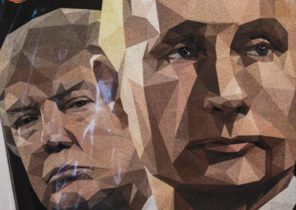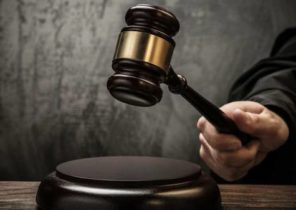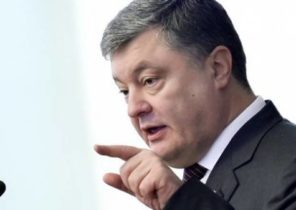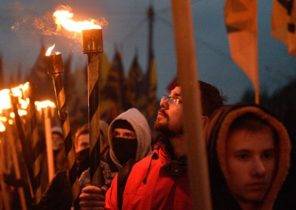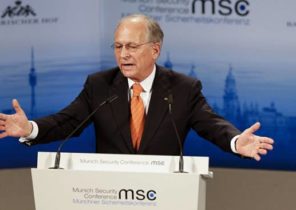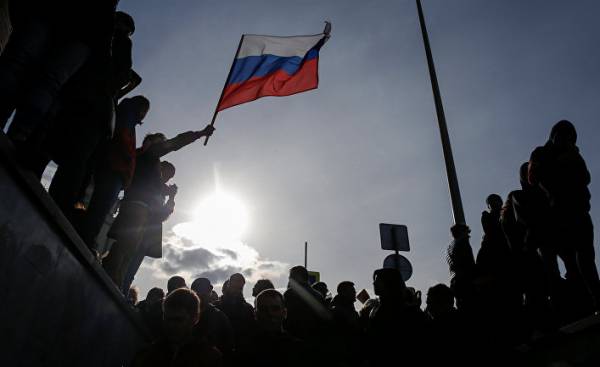
While Russia takes part in the solution of many international problems, thousands of people took to the street last weekend in protest against rampant corruption in the country. Interview with Jean de Gliniasty (Jean de Gliniasty), analyst at Institute of international and strategic studies.
— What is the position of the opposition in Russia? Can you talk about the awakening of civil society in connection with these protests?
The last demonstrations were the first major shares since the events on Bolotnaya square in 2011. They were held in many cities of Russia. Police said that on the street, out of 2 thousand people, but it is likely that the number of protesters reached 10 thousand people. It’s an impressive figure for restricted shares. These unauthorized processions, unlike the past two months ago, rallies in memory of Boris Nemtsov, has led to the arrests and caused the arrests.
These protests were organized by Alexei Navalny after showing on the Internet of the film-investigation, accused of corruption, Russian Prime Minister Dmitry Medvedev. Currently it has not affected President Vladimir Putin, who remains very popular among the Russian public. However, some witnesses say they saw the posters against Putin during the protests.
Alexei Navalny is a nationalist, and the main theme of his speeches that the fight against corruption. Now this is a very popular subject among the Russian public who consider corruption a real disaster. Although Navalny was detained for fifteen days for organizing protests, and so he is a frequenter of the courts and has already been conditionally sentenced to five years in prison for embezzlement of funds. Today Alexei Navalny is a real opposition, which is power.
Indeed, the liberal opposition was divided during the Duma elections last year. The opposition got alarming results, not only because of disputes between the democratic party “Yabloko” Grigory Yavlinsky and the party PARNAS Mikhail Kasyanov, but also due to the fact that Navalny, who originally wanted to join one of the liberal parties, in the end did not join any one of them. In the end, the liberal opposition received no seats in Parliament. In the Duma are the only party belonging to the system, namely supporting the current government.
Past protests have shown that today, Navalny is the only serious opposition. It is obvious that the Kremlin understands very well how to treat this opposition as its leader, took part in municipal elections in Moscow and received 27% of votes. It is an impressive result, given current and past circumstances. If the Kremlin wants to have a credible interlocutor, it will not facilitate his task. We are seeing some doubts of the Kremlin in relation to the figure of Navalny.
— Despite the ongoing FBI investigation regarding possible Russian interference in the U.S. presidential election, Vladimir Putin recently met with marine Le Pen. Can you talk about the “intervention” of Russia in elections in the West?
— This question is perfect for Russia. It is obvious that every country has their favorite among candidates in elections in countries with which it maintains relations. For example, it is clear that the French government and the majority public opinion in the country was for Hillary Clinton during the presidential campaign in the United States, but they do not affect its support. The Russian government, like other governments, have their own preferences among the candidates: in this case we are talking about Madame Le Pen and Francois Fillon. Therefore, it is an exaggeration to speak of intervention, while Putin plays host to the leader of “National front”. MS Merkel, for example, was found with almost all French candidates, with the exception of the extreme right, however it can not be called intervention.
In addition, there is the problem of the hacker. In fact, it is likely that all countries resort to such methods. Maybe the Russians were more clumsy and less noticeable than others, but you would think that this is part of the game.
Third point: many candidates wanted to explain the defeat of the clandestine actions of the hacker controlled by the government. Thus, it is a way to divert attention from mistakes in the course of the campaign, the chosen tactics and the wrong settings.
All of this suggests two conclusions. First, we actually face with the universal, more or less, noticeable and skillful intervention. Any country with a clear foreign policy has its preferences among the candidates and seek to support them. Then this phenomenon takes on a new scale just because we live in the era of globalization. Elections in the United States, France, Russia or Germany have the values for the whole world. Today, if one country can actually influence the elections in another country, she will always take advantage. So it is very interesting to observe as the elections in the powers and the superpowers affect the entire world, and, consequently, more players will try to intervene.
— Syria Libya Afghanistan…Moscow seems to have become a Central player in major international Affairs. What game Russia is leading in the international arena? How can you determine its strategy from the point of view of foreign policy?
— Actually, what was unusual was that Russia was relatively aloof from international Affairs in previous years. Today Russia is simultaneously reviving its Imperial period when she was active in the Mediterranean, and the Soviet period when the Soviet Union acted in the world. We’re going back to the old days when Russia was a world power, as many countries are a little rusty due to the relative departure of Moscow in the background.
One would assume that with a GDP lower than Italy and economic difficulties associated with the fall in oil prices, Russia will be more discreet in the international arena. But it’s not, because Russia have a habit to exercise power commensurate with its economic potential: it is about the concept of “poor power “. Thus, Moscow reverts to its rise as a world power and does so with some success, for example in Syria and not quite skillfully in Ukraine. But, it is obvious that Russia is returning to its role on the world stage and makes it overall a success.
However, most of these returns raises many questions, as there is a risk to get bogged down in Syria as well as in Ukraine and continue a frozen conflict, which carries the spark to fuel future disputes. With the return to the international arena Russia wants to capitalize on its current success, or peace conferences, or by entering agreements with the United States, or standing under the protection of the UN. We are approaching the period, and we see them through the prism of the conferences in Astana for the preparation of negotiations in Geneva, when Russia will try to negotiate his return to the international stage with the major powers.
